Legacy

A historical marker commemorates his life at the site of his home at 823 South Street. [8]
Robert Mara Adger Jr. (c. 1837 - June 10, 1910) was a businessman and bibliophile in Philadelphia. [1] His family owned a collectibles shop and lived adjacent. [2] He became a member of the Banneker Institute at the age of 17 and became its president in his mid twenties. [3] He amassed an important collection of books and periodicals by and about African Americans and donated it for posterity. The "Catalogue of rare books on slavery and negro authors on science, history, poetry, religion, biography, etc." was printed from the holdings in his private collection. [4] In 1981, Rare Afro-Americana: A Reconstruction of the Adger Library was published. [5]
Adger was born in Charleston, South Carolina to Mary Ann Morong, a Native American, and Robert Adger Sr. He had 12 siblings. In 1848 the family moved to Philadelphia and he studied at the Bird School. He worked at his store. He became a director of the Philadelphia Building and Loan Association, a mortgage company serving African-Americans and joined the Black Enlistment Committee help recruit black soldiers for the Union Army during the American Civil War. He founded a fraternal organization and was involved with civil rights groups including the Pennsylvania Equal Rights League. He helped found the Afro-American Historical Society that included his personal collection of books, pamphlets, and other materials related to African Americans and the antislavery movement.
He died of a heart attack on June 10, 1910 and his funeral was held at 1115 Lombard Street, his final place of residence. He is buried at the Merion Cemetery in Merion, Pennsylvania. [6] [7] [1]
In 1906 Robert Adger sold his books to Ella Smith Albert who was the second black student to graduate from Wellesley College. Ella donated Adger's book collection to Wellesley College in 1938 where it became scattered. There have been attempts to retrieve these volumes and those that are found are housed separately at the Wellesley College Rare Book Room. [3]

A historical marker commemorates his life at the site of his home at 823 South Street. [8]
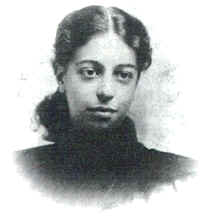
Angelina Weld Grimké was an African-American journalist, teacher, playwright, and poet.
An African American is a citizen or resident of the United States who has origins in any of the black populations of Africa. African American-related topics include:

Arturo Alfonso Schomburg, was a historian, writer, bibliophile, collector, and activist. He also wrote many books. Schomburg was a Puerto Rican of African and German descent. He moved to the United States in 1891, where he researched and raised awareness of the contributions that Afro-Latin Americans and African Americans have made to society. He was an important intellectual figure in the Harlem Renaissance. Over the years, he collected literature, art, slave narratives, and other materials of African history, which were purchased to become the basis of the Schomburg Center for Research in Black Culture, named in his honor, at the New York Public Library (NYPL) branch in Harlem.

Anthony Benezet was a French-born American abolitionist and teacher who was active in Philadelphia, Pennsylvania. A prominent member of the abolitionist movement in North America, Benezet founded one of the world's first anti-slavery societies, the Society for the Relief of Free Negroes Unlawfully Held in Bondage. He also founded the first public school for girls in North America and the Negro School at Philadelphia, which operated into the nineteenth century. Benezet advocated for kind treatment of animals, racial equality and universal love.
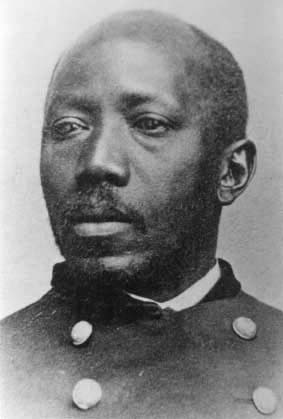
Martin Robison Delany was an American abolitionist, journalist, physician, military officer and writer who was arguably the first proponent of black nationalism. Delany is credited with the Pan-African slogan of "Africa for Africans." Born as a free person of color in Charles Town, Virginia, now West Virginia, and raised in Chambersburg and Pittsburgh, Pennsylvania, Delany trained as a physician's assistant. During the cholera epidemics of 1833 and 1854 in Pittsburgh, Delany treated patients, even though many doctors and residents fled the city out of fear of contamination. In this period, people did not know how the disease was transmitted.

Tony Martin was a Trinidad and Tobago-born scholar of Africana Studies. From 1973 to 2007 he worked at Wellesley College in Wellesley, Massachusetts, and over the course of his career published more than ten books and a range of scholarly articles.
John Henrik Clarke was an African-American historian, professor, prominent Afrocentrist, and pioneer in the creation of Pan-African and Africana studies and professional institutions in academia starting in the late 1960s.

The Schomburg Center for Research in Black Culture is a research library of the New York Public Library (NYPL) and an archive repository for information on people of African descent worldwide. Located at 515 Malcolm X Boulevard between West 135th and 136th Streets in the Harlem neighborhood of Manhattan, New York City, it has, almost from its inception, been an integral part of the Harlem community. It is named for Afro-Puerto Rican scholar Arturo Alfonso Schomburg.

Bella Vista, Italian for "beautiful sight", is a neighborhood in the South Philadelphia section of Philadelphia, Pennsylvania, United States.

William Whipper was a businessman and abolitionist in the United States. Whipper, an African American, advocated nonviolence and co-founded the American Moral Reform Society, an early African-American abolitionist organization. He helped found one of the first black literary societies in the U.S known as the Reading Room Society whose constitution stated that its aim was the "mental improvement of the people of color in the neighborhood of Philadelphia." William Whipper epitomized the prosperity that Northern Blacks were able to attain in the mid-19th century.
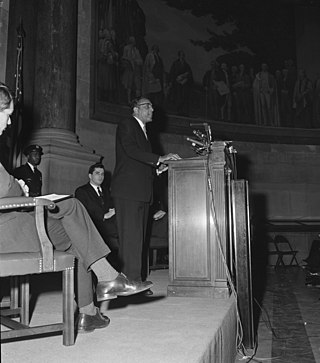
Charles Harris Wesley was an American historian, educator, minister, and author. He published more than 15 books on African-American history, taught for decades at Howard University, and served as president of Wilberforce University, and founding president of Central State University, both in Ohio.

Gwendolyn Midlo Hall was an American historian who focused on the history of slavery in the Caribbean, Latin America, Louisiana, Africa, and the African Diaspora in the Americas. Discovering extensive French and Spanish colonial documents related to the slave trade in Louisiana, she wrote Africans in Colonial Louisiana: The Development of Afro-Creole Culture in the Eighteenth Century (1992), studied the ethnic origins of enslaved Africans brought to Louisiana, as well as the process of creolization, which created new cultures. She changed the way in which several related disciplines are researched and taught, adding to scholarly understanding of the diverse origins of cultures throughout the Americas.
The Pyramid Club was formed in November 1937 by African-American professionals for the "cultural, civic and social advancement of Negroes in Philadelphia." By the 1950s, it was "Philadelphia's leading African-American social club."

John W. Mosley was a self-taught photojournalist who extensively documented the everyday activities of the African-American community in Philadelphia, Pennsylvania, for more than 30 years, a period including both World War II and the civil rights movement. His work was published widely in newspapers and magazines including The Philadelphia Tribune, The Pittsburgh Courier and Jet magazine.
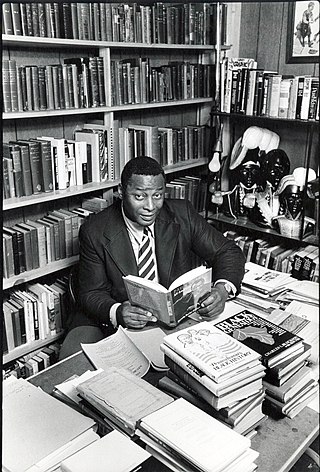
Charles Leroy Blockson was an American historian, author, bibliophile, and collector of books, historical documents, art, and other materials related to the history and culture of African Americans, continental Africans, and the African diaspora throughout the rest of the world. He curated two university collections related to the study of African-American history and culture: the Charles L. Blockson Collection of African-Americana and the African Diaspora at Pennsylvania State University and the Charles L. Blockson Afro-American Collection at Temple University.
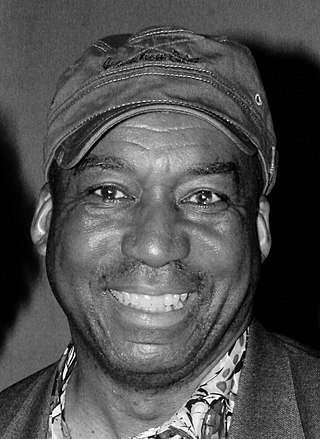
James G. Spady was an American Book Award-winning writer, historian, and journalist. Over his fifty-year career, Spady authored and edited numerous books, worked in radio, television, and film, wrote hundreds of newspaper articles for various print media, and received the National Newspaper Publishers Association's Meritorious Award.
Henry Proctor Slaughter was an American journalist, printer, and bibliographer. Slaughter collected resources that documented African American history, with a special focus on the subjects of slavery, the abolitionist movement, and correspondence from African American leaders throughout the nineteenth and early twentieth centuries. His collection of over 10,000 books and other materials now forms the Henry P. Slaughter collection at the Atlanta University Center Robert W. Woodruff Library.

William Henry Dorsey (1837-1923) was a bibliophile, artist, scrapbooker, numismatist, social historian, and collector of Black history and art. He was most noted for the 388 scrapbooks he compiled of newspaper and magazine clippings chronicling Black life in his hometown of Philadelphia and across the country during the 19th century.

Henry Laird Phillips was an American social reformer and rector of the Church of the Crucifixion, an African American Episcopal Church congregation in Philadelphia. The Pennsylvania Historical and Museum Commission erected a commemorative marker outside the church in 1993. W. E. B. Du Bois praised Phillips as "one of the most valuable social reformers of the day."